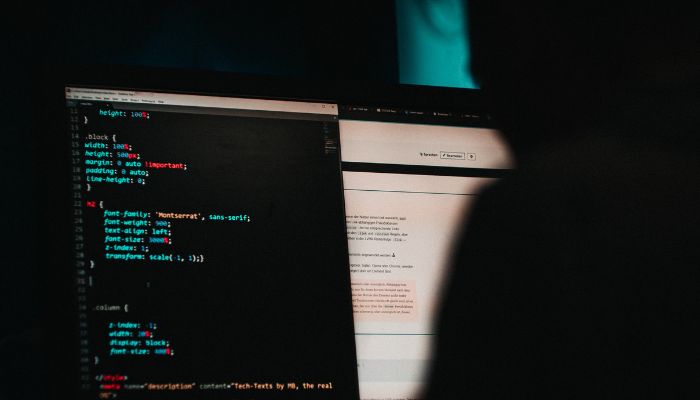
In the labyrinth of the digital world, every click, every search leaves a trace. This article navigates the complex terrain of online privacy, exploring how Internet Service Providers, websites, hackers, and governments can access your search history. It further delves into the effectiveness of protective measures, including the much-debated incognito mode.
Your Internet Service Provider (ISP) and network administrators can see the websites you visit. Websites use cookies to track behavior, but specific content on encrypted sites (HTTPS) is typically hidden. For enhanced privacy, use private browsing, VPNs, or other privacy tools.
Empower yourself with the knowledge to understand and enhance your online privacy in this ever-evolving cyber landscape.
Table of contents
- Understanding Online Privacy: The Basics
- Who Can See What You’re Doing Online?
- The Role of Internet Service Providers in Online Tracking
- How Websites and Search Engines Track Your Online Activity?
- The Intrusion of Hackers in Your Online Privacy
- The Influence of Governments on Internet Surveillance
- The Truth About Incognito Mode
- How to Protect Your Online Privacy
- Frequently Asked Questions
- Can Someone See What You Look up on Social Media Platforms Like Facebook or Instagram?
- How Does Using a VPN Affect Your Online Privacy?
- How Do Mobile Applications Track Your Online Activity?
- Can Your Online Activity Be Tracked When Using Public Wi-Fi?
- Does Clearing Your Browser History Entirely Erase Your Online Footprint?
- Conclusion : Can Someone See What You Look Up
Understanding Online Privacy: The Basics
The fundamental concept of online privacy revolves around the principle that individuals have the right to determine when, how, and to what extent their personal information is shared digitally.
This encompasses elements such as search history, personal data, and browser history. In the digital age, privacy settings play a critical role in protecting this right. These configurations allow users to regulate who can access their information and how it can be used.
However, online privacy is not absolute, and its effectiveness often depends on the specific settings chosen by the user. For instance, while a user might erase their browser history or utilize private browsing modes, these actions do not necessarily prevent an internet service provider (ISP) from tracking and storing their online activities. This is because ISPs typically have direct access to all data transmitted over their networks unless encrypted.
Therefore, understanding the dynamics of online privacy demands a comprehensive grasp not only of individual privacy settings but also of the broader digital environment, including the role of ISPs. This leads us into the subsequent section, where we will delve into the role of internet service providers in online tracking.
Who Can See What You’re Doing Online?

Internet Service Providers (ISPs)
- Internet Traffic: Your Internet Service Providers (ISPs) can monitor the internet traffic that passes through their servers. This includes the websites you visit, the search queries you make, and the data you download or upload.
- Type of Information: They can see your IP addresses, DNS requests, email addresses, and even the online habits you have, like the time you usually log on and the browser activity you engage in.
- Legal Framework: The legal framework governing ISPs’ data retention varies by country. Some countries require ISPs to retain data for a certain period for government agencies to access if necessary.
Wi-Fi Network Administrators
- Public Wi-Fi Risks: Using a public network like a public Wi-Fi network can expose your data to the Wi-Fi owner or network administrators. They can monitor the online traffic passing through their Wi-Fi router.
- Network Monitoring: Network administrators can see the websites you visit, the data you download or upload, and even intercept login details if the network lacks strong encryption.
Employers and Educational Institutions
- Network Usage Monitoring: Employers and educational institutions often monitor network usage to ensure no inappropriate content is being accessed or to maintain productivity.
- Real-life Monitoring Implications: There have been instances where employees or students faced disciplinary actions due to their online activity during work or school hours.
Operating Systems
- Data Storage: Operating systems store data like browsing history, keyboard strokes, and calendar events to provide better user experience.
- Privacy Settings Effectiveness: Adjusting the privacy settings on your device can provide a level of digital privacy, but it may not be foolproof.
Websites and Cookies
- User Behavior Tracking: Websites use cookies to track user behavior, which helps in personalizing the user experience but also tracks your browser activity.
- Pros and Cons of Cookies: While cookies can enhance user experience, they can also be used for advertising purposes and to create a profile of your online habits.
Search Engines
- Data Collection Extent: Search engines like Google collect a vast amount of data from the search bar to the search engine results you click on.
- Private Searching Alternatives: Privacy-focused search engines like DuckDuckGo offer private searches and do not track your search queries or retain your internet search history.
Apps
- Common Data Collection: Apps commonly collect data like email address, real IP address, and sometimes even financial details for in-app purchases.
- Privacy Policy Awareness: It’s crucial to read and understand the privacy policies of apps to know what data is being collected and how it’s being used.
Governments
- Government Surveillance: Governments can request internet providers to provide data on individuals for legal or security reasons.
- International Data Sharing: Some international agreements allow for data sharing across borders, especially concerning online security and criminal investigations.
Hackers and Cybercriminals
- Hacking Techniques: Hackers use various techniques to steal browsing data, credit card details, and other sensitive information from unsuspecting individuals.
- Real-life Data Theft Instances: There have been numerous instances where data theft led to financial loss or identity theft, showcasing the importance of online security.
Virtual Private Network (VPN)
- Online Anonymity: Using a Virtual Private Network (VPN) can help keep your online traffic anonymous, providing a private network from a public network.
- VPN Traffic Encryption: VPN traffic is encrypted, providing a slower connection but a much-needed layer of online security against Wi-Fi owners, Wi-Fi admins, and public Wi-Fi admins.
Proxy Servers and Browsing Modes
- Proxy Connection: Utilizing a proxy server can help mask your IP addresses, providing some level of anonymity.
- Private Browsing: Engaging in private browsing or incognito browsing can help keep your browsing history private, but it’s not a foolproof method as your ISP or Wi-Fi network administrators can still monitor your online traffic.
Understanding who can see what you’re doing online and taking steps like using VPN services, adjusting privacy settings, and being cautious on public Wi-Fi networks can help maintain your online privacy and protect your data from external parties and third-party marketers.
The Role of Internet Service Providers in Online Tracking

In our exploration of online privacy, we must consider Internet Service Providers (ISPs), for they play a significant role in online tracking.
These entities often hold an extensive amount of data on users’ internet activity, providing them with unique insight into individual online habits. ISPs, by virtue of the position they occupy, can monitor and log every piece of data transmitted over their networks.
When you interact with the internet, your ISP establishes the connection that allows data to be sent and received. Consequently, every website visit, every email sent, every file downloaded essentially passes through your ISP’s system.
This provides them with the opportunity to track and record this activity. For instance, they can discern patterns in your online habits, such as your preferred websites or the times you’re most active online.
The role of ISPs in online tracking is not just limited to data collection. Some ISPs have faced criticism for selling anonymized user data to advertisers. This has led to growing concerns about the potential misuse of personal data and the erosion of online privacy.
Thus, understanding the role of ISPs in online tracking is crucial for internet users.
How Websites and Search Engines Track Your Online Activity?
During your daily interactions with the digital world, websites and search engines employ sophisticated methods to track your online activity. They gather a vast amount of data from your online activities, including your search queries, and create a profile that reflects your digital behavior.
One method utilizes ‘cookies’, small files stored on your computer by websites you visit. These cookies record your preferences, login details, and other personalized data. Websites can then retrieve this information in subsequent visits to customize your experience.
Search engines, on the other hand, track your activity by logging your internet search history. They record the terms you search, the pages you visit, and even your location. This data aids in refining search algorithms, delivering targeted advertising, and providing personalized content.
However, privacy-focused search engines exist that do not record your search queries or track your online activity. They ensure your internet search history remains private and untraceable.
Despite these protective measures, it is crucial to understand the extent of your digital footprint and take proactive steps to manage your online privacy. This awareness will ensure a more secure internet experience.
The Intrusion of Hackers in Your Online Privacy

While you navigate the digital landscape, hackers pose a significant threat to your online privacy, and their intrusion often extends beyond a simple breach of your personal data. These cybercriminals employ advanced techniques to infiltrate your online security systems and gain unauthorized access to your internet history, including browser activity.
Fundamentally, hackers exploit security vulnerabilities to retrieve data from your digital devices. This can range from passwords to financial information, or even your most private and sensitive data. One method often used is the installation of spyware, a malicious software that covertly extracts your internet history and browser activity. This enables hackers to monitor your online behavior, track your movements, and intercept personal information.
The severity of these intrusions should not be underestimated, as they pose a significant risk to online privacy. To mitigate this risk, it is imperative that individuals develop a robust understanding of online security measures and implement protective strategies such as updating software regularly, using strong, unique passwords and employing secure, encrypted connections.
The Influence of Governments on Internet Surveillance
Government surveillance of online activities has become a pervasive issue, raising concerns about privacy rights on a global scale. The scope and intensity of internet surveillance conducted by government agencies have expanded dramatically in the digital age. The activities of repressive governments, in particular, have been a matter of concern.
Many government agencies have enacted legislation allowing them to monitor online activities, often without requiring a warrant or any judicial oversight. Internet providers are frequently compelled to share user data with authorities on request, sometimes even without the user’s knowledge or consent.
Repressive governments use internet surveillance as a tool to suppress dissent, monitor opposition activities, and control information flow. Even democratic governments are not exempt from this trend, with many implementing sweeping surveillance laws under the guise of national security.
This reality has serious implications for individual privacy rights and democratic freedoms. The ever-increasing reach of internet surveillance underscores the urgent need for robust privacy laws and safeguards to protect individual rights. As users, we must be vigilant and proactive in protecting our online privacy in the face of such pervasive surveillance.
The Truth About Incognito Mode

The common misconception that browsing in incognito mode provides complete privacy is, unfortunately, far from the truth. While it’s true that incognito mode, also known as private browsing, does not store your browsing history in the search bar or on your local device, it does not entirely shield your activities from external parties.
- Internet Service Providers (ISPs): Even while using incognito mode, ISPs can still track and record your online activities.
- Websites: Websites you visit can collect and store information about your visit, even when you are in private browsing.
- Search Engines: Most search engines keep track of your search queries and clicks, regardless of whether you’re browsing privately or not.
- Employers and Schools: In a controlled network environment, such as a workplace or school, network administrators can still monitor your internet use.
Therefore, while incognito mode does have its uses, it is not a foolproof method for maintaining privacy online. It is crucial to understand the limitations of private browsing and take additional steps to protect your privacy when necessary.
How to Protect Your Online Privacy

Protecting your online privacy is crucial to ensure your personal information remains secure. Here are some effective methods to safeguard your online privacy:
VPNs (Virtual Private Networks)
Virtual Private Networks (VPNs) are a great tool to enhance your online privacy. Here’s how they work and some recommended options:
- How VPNs Work to Protect Your Privacy:
- Encryption: VPNs use strong encryption to scramble your data, making it unreadable to anyone who intercepts it.
- IP Masking: They mask your real IP address, making your online actions virtually untraceable.
- Server Locations: VPNs route your traffic through server locations around the world, further anonymizing your online activities.
- Recommended VPNs and Their Features:
- NordVPN: Known for its strong encryption and no-logs policy.
- ExpressVPN: Offers a vast network of servers and excellent speed.
- CyberGhost: Provides automatic Wi-Fi protection for secure browsing on public networks.
Proxy Servers
Proxy servers act as intermediaries between your device and the internet. Here’s how they provide anonymity and when to use them:
- The Level of Anonymity Provided by Proxy Servers:
- IP Hiding: Proxy servers hide your real IP address, providing a level of anonymity.
- Online Traffic: They can handle your online traffic, but unlike VPNs, they might not encrypt it.
- When to Use a Proxy Server:
- Bypassing Geo-Restrictions: Useful for bypassing geo-blocks on content.
- Light Anonymity Needs: When you need a basic level of anonymity, a proxy server can be a good choice.
Tor Browser
The Tor Browser is designed to provide anonymity as you browse the web. Here’s how it works and its pros and cons:
- The Principle Behind Tor’s Anonymity:
- Onion Routing: Tor uses onion routing where your data is encrypted and then bounced through a network of servers, peeling away layers of encryption at each stage.
- The Pros and Cons of Using Tor:
- Pros: High level of anonymity, access to the dark web.
- Cons: Slower connection speeds, not all websites are accessible.
Other Means of Online Protection
There are other methods to protect your online privacy. Here are some of them:
- Privacy-Focused Browsers:
- Brave: Blocks trackers and ads by default.
- DuckDuckGo: Doesn’t track your search queries.
- Disabling Cookies and Clearing Browsing History:
- Cookies: Disable cookies to prevent websites from tracking your browser activity.
- Browsing History: Regularly clear your browsing history to remove any stored data.
- Using Pseudonyms and Anonymous Email Services:
- Pseudonyms: Use pseudonyms instead of your real name online to protect your identity.
- Anonymous Email Services: Use services like ProtonMail for anonymous email correspondence.
- Privacy Settings:
- Tweak the privacy settings on your devices and online accounts to limit data collection.
- Private Browsing:
- Use private browsing mode or incognito browsing to reduce data storage on your device.
- Check Privacy Policies:
- Always check the privacy policies of websites and apps to know what data they collect.
- Secure Socket Layer (SSL):
- Look for “https” in the address bar which indicates the use of SSL for a secure connection.
- Regular Updates:
- Keep your internet browser, operating system, and security software updated to patch any security vulnerabilities.
- Educate Yourself:
- Stay informed about the latest in online security to protect yourself better.
- Avoid Public Wi-Fi for Sensitive Transactions:
- Avoid conducting sensitive transactions like online banking on public Wi-Fi networks to prevent data theft.
By employing a combination of these methods, you can significantly enhance your online privacy and protect your personal information from prying eyes. Whether it’s using a VPN, tweaking your privacy settings, or being cautious about the networks you connect to, every step counts towards securing your digital life.
Frequently Asked Questions
Can Someone See What You Look up on Social Media Platforms Like Facebook or Instagram?
On social media platforms such as Facebook or Instagram, your search history is generally private. However, the platforms themselves may use this information for personalized content and advertising, but it’s not visible to other users.
How Does Using a VPN Affect Your Online Privacy?
Using a Virtual Private Network (VPN) significantly enhances online privacy by encrypting your internet connection, thereby preventing your online actions from being visible to others, including your Internet Service Provider or potential hackers.
How Do Mobile Applications Track Your Online Activity?
Mobile applications track your online activity primarily through cookies, device IDs, and IP addresses. They gather data regarding your browsing habits, app usage, location, and preferences to provide personalized content and targeted advertisements.
Can Your Online Activity Be Tracked When Using Public Wi-Fi?
Yes, your online activity can be tracked when using public Wi-Fi. Network operators or hackers can potentially view your browsing history, intercept your data, and access sensitive information if your connections are not encrypted.
Does Clearing Your Browser History Entirely Erase Your Online Footprint?
Clearing your browser history is akin to wiping footprints off a sandy beach, but not entirely eradicating your online footprint. Internet Service Providers and websites can still potentially track and store your online activities.
Conclusion : Can Someone See What You Look Up
In conclusion, online privacy is a complex issue, shrouded in layers of technology, policy, and human behavior. It’s evident that Internet Service Providers, search engines, hackers, and even governments possess the capacity to monitor online activities.
Though methods such as Incognito Mode provide a semblance of privacy, they are merely the tip of the iceberg. Therefore, a comprehensive strategy encompassing conscious browsing habits, technical knowledge, and appropriate tools is vital for maintaining online privacy.